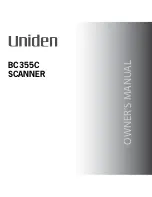
Page 3
Rebuild
Calibration
C/67
None
The calibration is rebuilt for the current temperature, using the
active microDAQ settings
Filter
F/70
0 - Off
1 - 2
2 - 4
3 - 8
4 - 16
5 - 32
6 - 64
7 - 128
8 - 256
9 - 512
10 - 1024
11 - 2048
12 - 4096
13 - 8192
14 - 16384
15 - 32768
16 - 65536
17 - Reset on Ouptut
Adjust the output filter setting that is applied after the calibration
within the microDAQ. If switching the data delivery rate
between slow and fast values, it may be desirable to adjust the
amount of output filtering accordingly. Also the average
between delivery option may be chosen through this command.
The value of the parameter reflects the number of samples in
the output moving average. In the case of 'Reset on Output',
the measured pressure value is averaged over the time between
data delivery cycles.
Rezero and
Rebuild
G/71
None
Requests a rezero followed by a calibration table rebuild, with
the calculated zero offsets being applied to the calibration
data.. Note these rezero offsets are separate from any normal
rezero that may be performed afterwards.
Rate
V/86
byte = 0xab
a = 0 RS232
a = 1 TCP
a = 2 CAN
a = 3 Internal RAM
For RS232 :
b = 0 : Off
b = 1 : 20 Hz
b = 2 : 10 Hz
b = 3 : 5 Hz
b = 4 : 2 Hz
b = 5 : 1 Hz
For TCP :
b = 0 : Off
b = 1 : 1000Hz
b = 2 : 625Hz
b = 3 : 500 Hz
b = 4 : 400 Hz
b = 5 : 312 Hz
b = 6 : 225 Hz
b = 7 : 200 Hz
b = 8 : 150 Hz
b = 9 : 100 Hz
b = 10 : 50 Hz
b = 11 : 25 Hz
b = 12 : 20 Hz
b = 13 : 10 Hz
b = 14 : 5 Hz
b = 15 : 1 Hz
For CAN & Internal
RAM:
b = 0 : Off
b = 1 : 1000 Hz
Adjust the data delivery rate for each communication channel.
The upper nibble of the parameter byte selects which
communication channel, while the lower selects its data rate.
CAN & Internal RAM ‘comms’ have the same available data
rates.



































